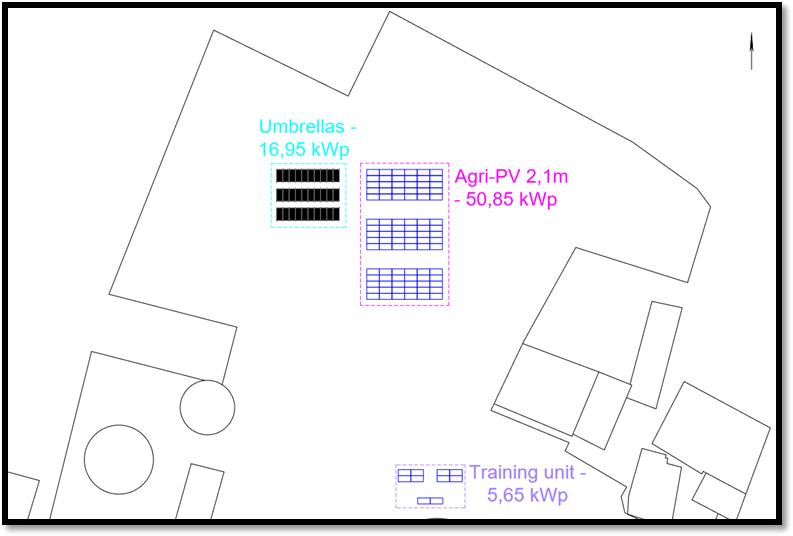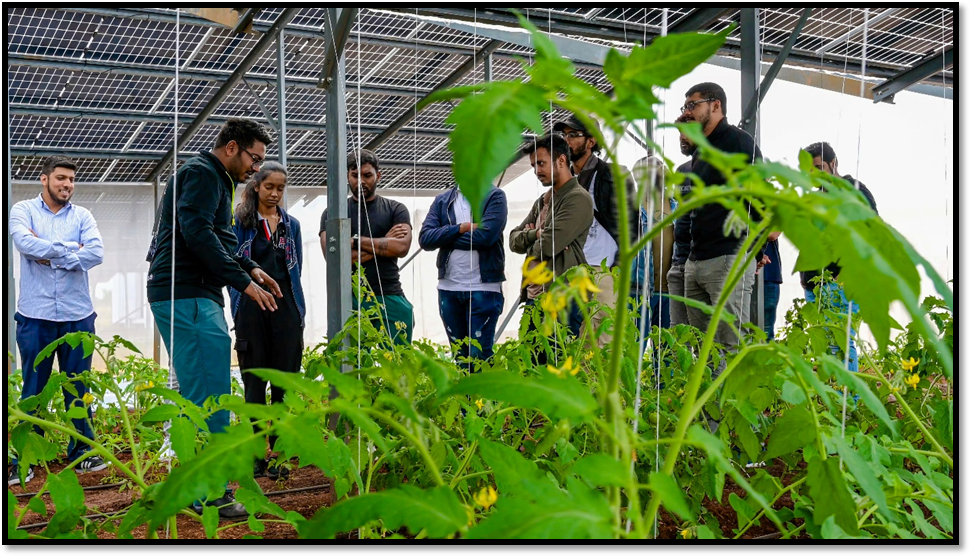The SUNfarming Food & Energy Centre Caucaia, with an installed power of 73.45 kWp is a pilot project which shows the capabilities that SUNfarming’s Agri-Solar concept can offer.
The installation includes three Agri-Solar photovoltaic tables, with a minimum height of 2.1 m and three rows ofumbrellas, with a greater height and specifically designed for the cultivation of trees, vines, and berry fruits.
The project will be adapted to local conditions through a selection of locally grown crops and an automated drip irrigation system specifically sized for the project conditions. A reservoir is also planned to be installed to ensure water supply during the dry season.

A 5.65 kWp training installation is also included, designed specifically for educational use as a modular system with an independent inverter and different types of mounting systems, to facilitate the instruction of students in practical PV trainings.
The SUNfarming Agri-Solar Food & Energy facility in Caucaia, will serve not only as a portfolio and a stronghold for SUNfarming Brazil, but also as a research and training center of reference in the agri-photovoltaic field, in collaboration with local educational and scientific institutions.

German Energy Agency (dena)
The German Energy Agency (dena) is a centre of excellence for the applied energy transition and climate protection. dena studies the challenges of building a climate-neutral society and supports the German government in achieving its energy and climate policy objectives. Since its foundation in 2000, dena has worked to develop and implement solutions and bring together national and international partners from politics, industry, the scientific community and all parts of society. dena is a project enterprise and a public company owned by the German federal government. dena’s shareholder is the Federal Republic of Germany. www.dena.de/en
German Energy Solutions Initiative
With the aim of positioning German technologies and know-how worldwide, the German Energy Solutions Initiative of the Federal Ministry for Economic Affairs and Climate Action (BMWK) supports suppliers of climate-friendly energy solutions in opening up foreign markets. The focus lies on renewable energies, energy efficiency, smart grids and storage, as well as technologies such as power-to-gas and fuel cells. Aimed in particular at small and medium-sized enterprises, the German Energy Solutions Initiative supports participants through measures to prepare market entry as well as to prospect, develop and secure new markets.
Renewable Energy Solutions Programme (RES Programme)
With the RES programme, the German Energy Solutions Initiative of the Federal Ministry for Economic Affairs and Climate Action (BMWK) helps German companies in the renewable energy and energy efficiency sectors enter new markets. Within the framework of the programme, reference plants are installed and marketed with the support of the German Energy Agency (dena). Information and training activities help ensure a sustainable market entry and demonstrate the quality of climate-friendly technologies made in Germany.
www.german-energy-solutions.de/GES/Redaktion/EN/Basepages/Services/dena-res.html
